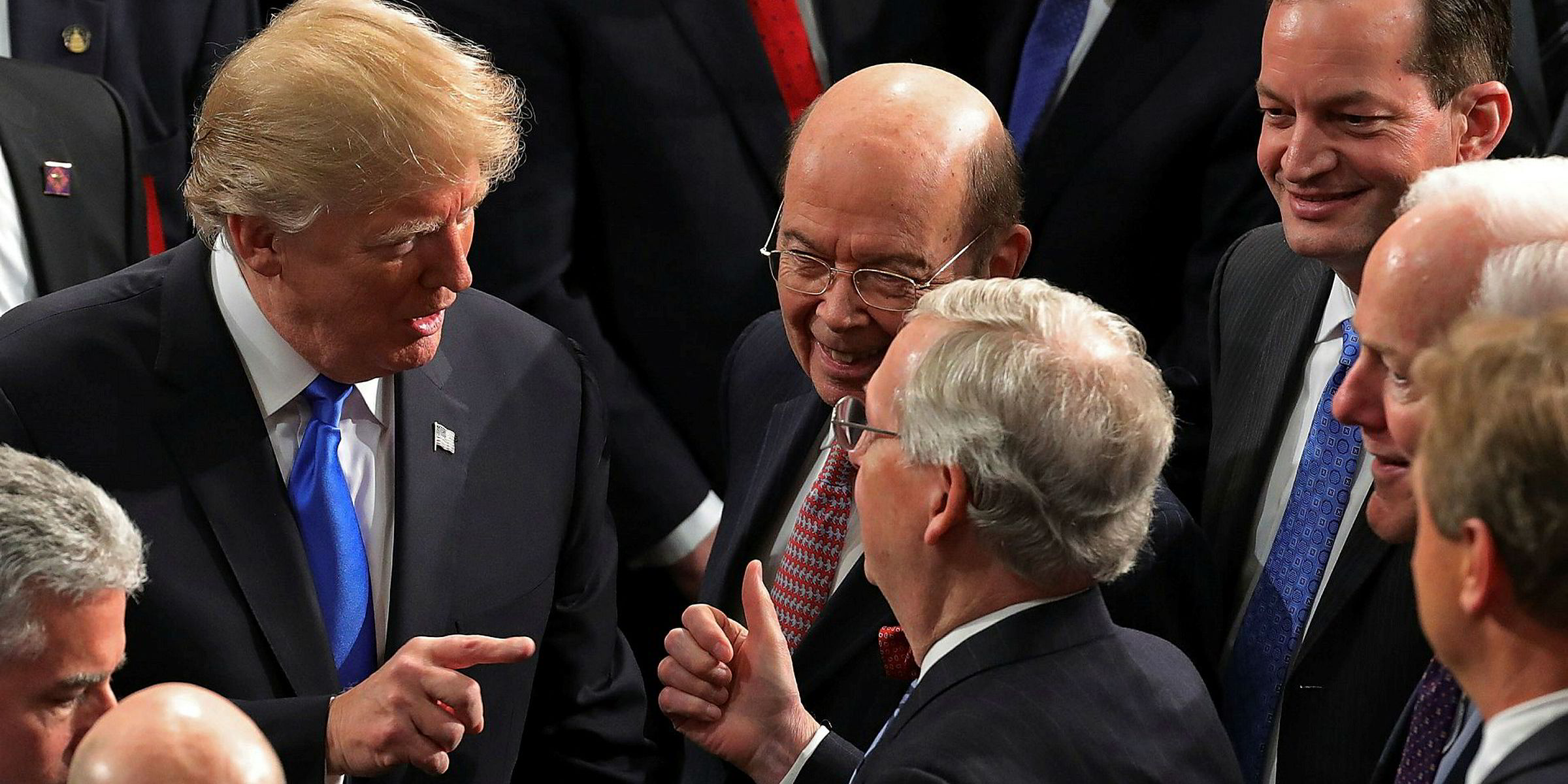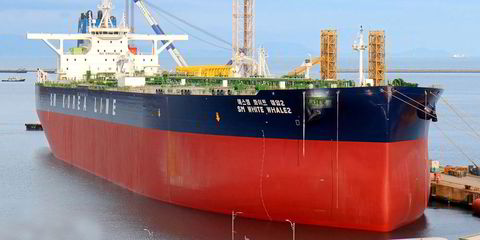It is not surprising to hear Donald Trump raising the banner for a trade war and declaring casually and disingenuously that it is “easy to win”. Disrupting the status quo is the name of the game for the former TV celebrity, but it is unusual to hear a shipping investor lend his support.
Wilbur Ross, a former part-owner of Navigator Holdings and Diamond S Shipping, and now US commerce secretary, helped create the conditions for Trump to pursue his plan for a 25% tariff on imported steel and 10% on aluminium.
On 16 February, Ross released a report from his department claiming the amount of steel imported to the US threatened to “impair the national security”.
To be honest, Ross, a former Democrat turned Republican, has a history of supporting protectionism. But he also created some of his alleged $1bn personal fortune by selling Bethlehem Steel, Weirton and other American metal producers he once part-owned into the hands of a foreign buyer, Mittal of India.
Shipowners are normally keen for governments to stay out of commerce. They want global trading to be as open as possible.

Hence AP Moller-Maersk’s reaction to the Trump promise to rebuild the domestic steel industry by trying to keep Chinese and other imports out or at least down. Such measures would break World Trade Organization rules and risk tit-for-tat treatment from other countries, as the European Union has threatened.
“While the scope of the proposed [Trump] tariffs will impact a few percent of US imports, there is no doubt that introduction of further and countervailing measures will harm global trade and increase production costs in impacted countries,” the Danish boxship giant said.
AP Moller-Maersk: There is no doubt that introduction of further and countervailing measures will harm global trade and increase production costs in impacted countries
Shipbroker Banchero Costa warned that these protectionist measures could hit the dry bulk operators that deliver steel to the US.
Financial services firm Cowen & Co said it would not be surprising if China hit back by reducing the amount of US LNG imports. That would hurt the gas carrier sector as well as run across one of the chief purposes of a Trump visit to Beijing last November: to increase US energy exports to China.
But Trump now claims that a US-China trade deficit of $500bn (in fact it is only $375bn) must be reduced.
Global shares initially dived after his announcement and there is still little support in the business community for the clampdown — even in the US.
Domestic car manufacturers and even the American Petroleum Institute, lately one of his most vociferous supporters, oppose the steel tariffs.
This is because cheaper imported steel is important for keeping down costs on drilling equipment, LNG terminals and refineries.
The Association of Oil Pipe Lines said the White House plan would “kill [US] jobs”. Leading economists such as Brad McMillan, chief investment officer for the Commonwealth Financial Network, said: “The net effect of the tariffs... will be economic damage, higher inflation and greater geopolitical instability.”
Key parts of the New York stock market dived in the immediate aftermath of Trump’s announcement to slap barriers on some imports “for a long period of time”.
The EU warned that these kinds of measures could lead to 25% tariffs being imposed on US imports such as Harley-Davidson motorbikes, Levi jeans and bourbon whisky.
That in turn set Trump threatening to widen his protectionism to the import of BMW and other cars from Europe. Unsurprisingly, that immediately led to concerns from analysts at DNB Markets about future trading volumes for car carriers such as Oslo-based Wallenius Wilhelmsen Logistics.
Trump insists he is serious about the measures but Wall Street has recovered its nerve in recent days. This is partly a reaction to leading figures from the president’s own Republican party making it clear they opposed his ideas. Even Trump's own trade adviser, Gary Cohn, resigned over this.
Some see his stance as a way of getting countries such as China and Mexico to be more accommodating in future trade talks.
If so, it’s a high-risk strategy and a surprising one for a former shipping investor to support. But is it also possible that Trump could move on from protecting metals to defending local shipping — beyond the Jones Act?
It is worth remembering, perhaps, that Ross is a celebrated collector of Belgian artist Magritte. The commerce secretary has a taste for the surreal.




